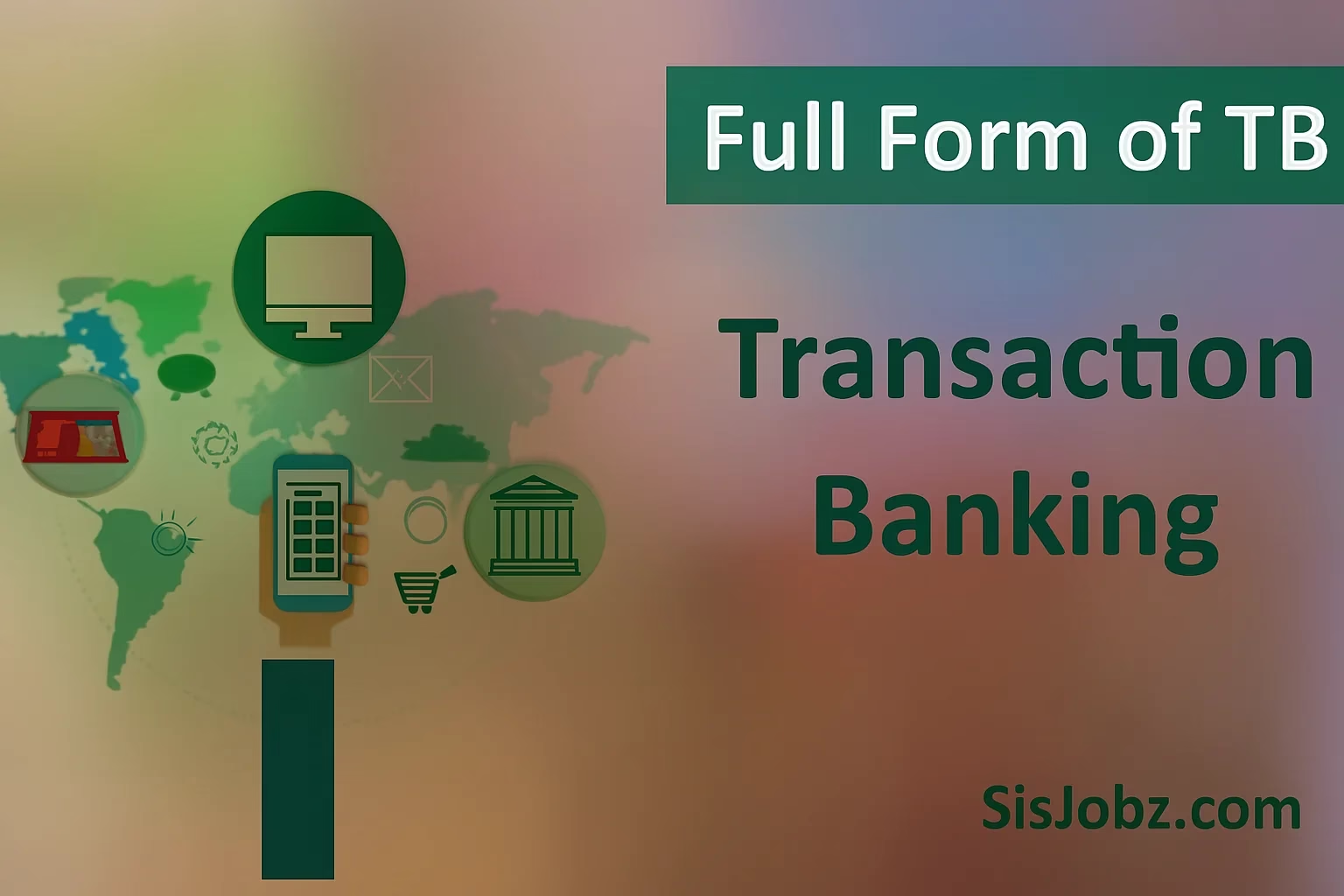In today’s volatile global financial environment, the ability to Manager financial markets reporting, product controls, and performance monitoring is not a luxury—it’s a necessity. Corporates and banks alike are under constant scrutiny from regulators, investors, and clients. A single failure in reporting accuracy, compliance, or risk oversight can lead to reputational damage, financial loss, and even regulatory penalties.
At the heart of this challenge lies the role of Business Finance professionals in Corporate & Investment Banking (CIB) and Transaction Banking (TB). At Standard Chartered, this role is designed to not just monitor numbers, but to drive strategy, safeguard compliance, and ensure sustainable growth.
This detailed script outlines the responsibilities, challenges, and strategic impact of managing CIB and TB finance portfolios—highlighting how this function prevents costly failures while driving performance excellence.
The Strategic Mandate
The role is defined by three primary mandates:
- Reporting & Compliance Excellence – Delivering accurate, timely, and insightful reports in line with IFRS and regulatory standards.
- Performance & Profitability Management – Monitoring business results, identifying gaps, and recommending strategies to enhance profitability.
- Risk Control & Operational Safeguarding – Acting as the second line of defense to identify, assess, and mitigate risks across CIB and TB businesses.
These mandates converge to ensure that Standard Chartered remains both profitable and resilient in highly competitive markets.
Why This Role Matters: Avoiding the 10 Critical Failures
Without this role, a bank risks falling into 10 dangerous pitfalls:
- Missed Strategic Targets due to poor forecasting.
- Delayed Decision-Making caused by inaccurate or late financial data.
- Hidden Losses in product profitability analysis.
- Ineffective Loan Impairment Recognition leading to regulatory breaches.
- Compliance Violations with IFRS or local reporting laws.
- Overstretched Guarantee Limits that expose the bank to unmanaged risks.
- Weak Operational Controls that let fraud or errors slip through.
- Untracked Initiatives with no accountability on performance.
- Poor Stakeholder Communication through inadequate board-level reporting.
- Failure to Detect Emerging Risks before they escalate.
This role is therefore not optional—it is mission critical to the health of the business.
Expanded Responsibilities: A Deep Dive
Here is a structured breakdown of the responsibilities, expanded with context and strategic outcomes.
1. Strategic Planning & Forecasting
- Support the Head of Business Finance in preparing the 5-Year Strategic Plan.
- Lead the Corporate Forecasting process with precise target-setting and scenario analysis.
- Align operating plans with both local realities and group-level ambitions.
Why It Matters:
Without robust planning, banks risk missing growth targets or overcommitting resources. Strategic planning ensures agility in volatile markets.
2. Performance Monitoring
- Deliver monthly reports covering revenue, impairments, and balance sheet.
- Provide commentary on performance gaps and recommend corrective action.
- Track both financial and non-financial metrics such as deals in the pipeline.
Why It Matters:
Performance without measurement is a blind spot. Timely monitoring prevents surprises that can derail profitability.
3. Profitability Analysis
- Conduct product-level profitability studies.
- Highlight high-margin opportunities and underperforming areas.
- Recommend pricing adjustments or cost controls.
Why It Matters:
Without profitability insights, businesses risk growing unprofitable portfolios—a hidden financial drain.
4. Regional & Group Collaboration
- Partner with Regional Finance Teams for cross-border consistency.
- Support Group Special Asset Management (GSAM) on impairments and IIS.
- Share reconciliations to ensure loan downgrade accuracy.
Why It Matters:
Global banks demand group-wide alignment. Misaligned reporting creates credibility risks across regions.
5. Regulatory Reporting
- Prepare statutory financials in line with IFRS and local standards.
- Ensure accuracy in board-level presentations.
- Work with regulators to address compliance queries.
Why It Matters:
Regulatory missteps result in penalties, audits, and reputational loss. Compliance safeguards the bank’s license to operate.
6. Operational Risk Management
- Identify, assess, and monitor key risks in CIB operations.
- Perform Control Sample Testing (CST) and track Key Risk Indicators (KRIs).
- Act as a second line of defense by ensuring controls are implemented.
Why It Matters:
Unchecked risks lead to fraud, operational breakdowns, or financial misstatements. Proactive management prevents crises.
7. Financial Markets Controls
- Implement Group Accounting Guidelines for financial markets products.
- Perform monthly balance substantiation to confirm accuracy.
- Manage transfer pricing allocations and intra-group guarantees (IGGs).
Why It Matters:
Cross-border operations carry hidden risks. Mismanagement leads to losses, breaches, and regulatory action.
8. Supporting Innovation & Initiatives
- Track performance of new initiatives.
- Assist in designing financial information systems.
- Present insights to senior management.
Why It Matters:
Without tracking, new projects risk becoming cost centers rather than growth drivers.
Responsibilities vs Impact
| Responsibility Area | Expanded Actions | Strategic Impact |
|---|---|---|
| Strategic Planning & Forecasting | 5-year plan, corporate forecasts, scenario analysis | Ensures resilience against market volatility |
| Performance Monitoring | Monthly reports, variance analysis, deal pipeline tracking | Prevents surprises, supports corrective action |
| Profitability Analysis | Product-level profitability, margin improvement strategies | Identifies hidden losses, strengthens financial returns |
| Regional & Group Collaboration | GSAM support, IIS reconciliations, regional consistency | Builds global credibility and reporting accuracy |
| Regulatory Reporting | IFRS compliance, statutory reports, board presentations | Avoids penalties, builds trust with regulators |
| Operational Risk Management | CST, KRIs, risk assessments | Prevents fraud, misstatements, and reputational risks |
| Financial Markets Controls | Balance substantiation, transfer pricing, intra-group guarantee tracking | Strengthens cross-border accountability |
| Supporting Innovation | Track new initiatives, design systems, support senior management | Ensures innovation delivers measurable value |
Culture at Standard Chartered: The Human Side
Beyond numbers, Standard Chartered thrives on a culture built on three core values:
- Do the Right Thing – Integrity and client-centricity drive every action.
- Never Settle – A growth mindset ensures we innovate and improve continuously.
- Better Together – Diversity and inclusion make us stronger, enabling long-term success.
This culture ensures that finance professionals do not work in silos but as part of a global network of collaboration and innovation.
What Standard Chartered Offers
Employees are supported through:
- Competitive pay aligned with the Fair Pay Charter.
- Retirement savings, life and medical insurance.
- 30+ days off annually, including parental leave and sabbatical options.
- Flexible work models (remote + office).
- Access to Unmind Wellbeing Platform and mental health support.
- Continuous reskilling and upskilling opportunities.
Conclusion
Managing CIB and TB portfolios is not about crunching numbers—it’s about protecting the bank from costly failures while driving growth and profitability.
This role ensures that Standard Chartered stays compliant, profitable, and resilient in an unpredictable financial world. With responsibilities spanning reporting, planning, risk management, and collaboration, the function is a cornerstone of sustainable banking success.
At Standard Chartered, this isn’t just a job. It’s a mission to prevent failures, empower decisions, and shape the financial future.




One Comment